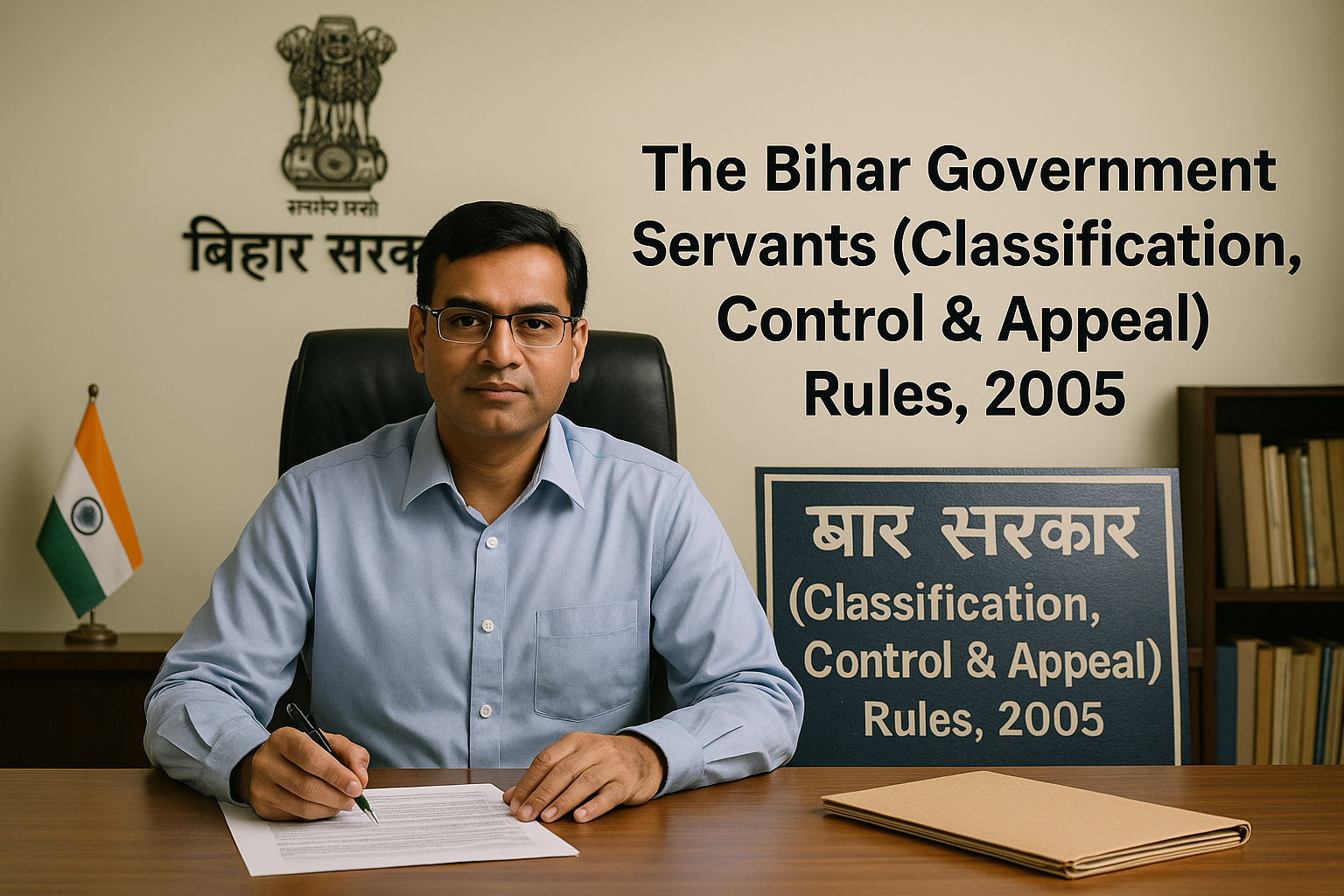Introduction
In the state of Bihar, government employees play a vital role in the implementation of public policies and welfare programs. To ensure accountability and discipline within the bureaucracy, the Bihar Government introduced the Bihar Government Servants Rules, 2005. These rules provide a structured framework for service classification, disciplinary actions, and appeal mechanisms. This article delves into the key aspects of these rules, with special attention to their application within the jurisdiction of the Patna High Court and subordinate courts.
Simplified Explanation of the Law
The 2005 Rules were enacted to regulate the conduct, responsibilities, and disciplinary proceedings concerning state government employees. The Rules classify government servants into groups, detail misconduct procedures, prescribe penalties, and offer a channel for appeals. The primary aim is to uphold efficiency and integrity in public service.
Key Legal Provisions
- Rule 3: Classification of Government Servants
- Government servants are classified into Groups ‘A’, ‘B’, ‘C’, and ‘D’ based on their rank and responsibilities.
- Rule 14: Grounds for Disciplinary Action
- Misconduct, negligence, violation of rules, or moral turpitude can be grounds for initiating disciplinary action.
- Rule 17: Procedure for Major Penalties
- This includes the issuance of a charge sheet, opportunity to be heard, and inquiry report submission before imposing penalties such as dismissal or demotion.
- Rule 23: Appeal Process
- Any government servant aggrieved by an order of penalty can file an appeal within 45 days to the prescribed appellate authority.
- Rule 24: Revision and Review
- Allows review of disciplinary decisions if new evidence emerges or if there’s a legal defect in the original decision.
- Rule 27: Suspension
- A government employee may be suspended pending inquiry if their presence is likely to hinder proceedings or tamper with evidence.
Patna High Court/Supreme Court Interpretations
The Patna High Court has consistently underscored the importance of procedural fairness in disciplinary matters. In several judgments, the Court has invalidated departmental actions that did not comply with natural justice principles or failed to provide sufficient opportunity for defense. The Supreme Court, in parallel, has emphasized that disciplinary rules must be strictly followed and penalties should be proportionate to the misconduct.
Bihar-Specific Rules/Notifications
This rulebook has been amended multiple times, with major amendments in 2007, 2008, 2010, 2018, and 2025. These amendments primarily refined procedures, added provisions for new forms of misconduct, and updated appeal mechanisms.
Practical Application in Bihar
Consider a case where a Block Development Officer is accused of misappropriation of funds. Under Rule 17, a formal inquiry would be conducted. If found guilty, they may be demoted or dismissed. The officer can appeal the decision under Rule 23 to the departmental head or further to the Bihar Administrative Tribunal, depending on the service conditions.
Another common example includes absenteeism, where under Rule 14, a warning or minor penalty like salary withholding may be imposed.
Frequently Asked Questions (FAQs)
- Can a suspended employee draw salary?
- Yes, they are entitled to subsistence allowance as per rules during suspension.
- How long can an employee be kept under suspension?
- Ideally, not beyond 90 days without review, unless extended with justification.
- Can disciplinary proceedings run parallel to a criminal case?
- Yes, both can proceed independently unless they are directly interconnected.
- Is legal representation allowed during departmental inquiry?
- Only if permitted by the inquiry officer or if the prosecution is legally represented.
- What happens if an appeal is not decided within time?
- It may be deemed rejected after a reasonable period, but judicial review is possible.
Soft Legal Guidance
Government employees in Bihar should familiarize themselves with these rules, especially when facing inquiries or departmental proceedings. It is advisable to keep records, respond promptly to notices, and seek legal advice when needed. Transparency and cooperation during inquiries often aid in fair outcomes.
Please find a link to the Bihar Government Servants (Classification, Control & Appeal) Rules, 2005 here









